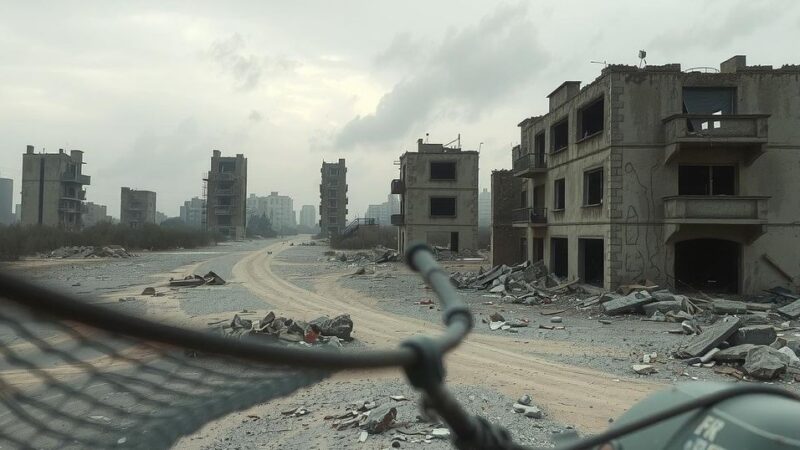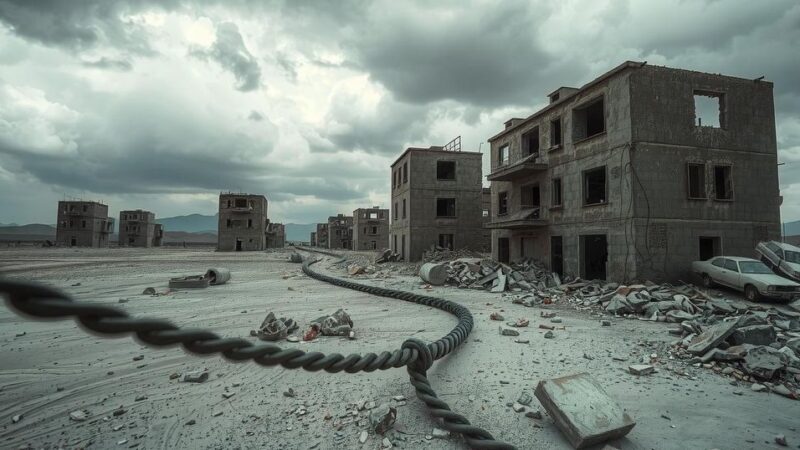An airstrike by South Sudan’s airforce killed 19 people in Nasir, escalating tensions with the White Army militia and risking renewed civil war. The attack occurred shortly after government forces retreated from the area. Accusations against First Vice President Riek Machar’s party complicate the conflict, leading to fears of further violence.
A recent airstrike conducted by South Sudan’s airforce in Nasir resulted in the deaths of at least 19 individuals, significantly escalating tensions between government forces and the White Army militia. This military action occurred less than two weeks after the government retracted its forces from the region due to ongoing hostilities with the militia that is predominantly composed of ethnic Nuer youths. Residents fear that these developments could lead to a resurgence of the civil war that ravaged the nation from 2013 to 2018, claiming countless lives.
The South Sudanese government has accused the faction led by First Vice President Riek Machar, also a Nuer, of collusion with the White Army, which had allied with Machar against the ethnic Dinka forces loyal to President Salva Kiir during the civil war. The party led by Machar has refuted these allegations. Notably, a South Sudanese general was among approximately 27 soldiers killed on March 7 when a U.N. helicopter, attempting to evacuate them from Nasir, came under fire.
According to South Sudan’s Information Minister Michael Makuei, the airforce targeted Nasir on Monday morning. Community leader Kang Wan stated that the bombing occurred late Sunday evening, with 15 victims dying instantly while others succumbed to injuries. Witnesses reported that the aftermath was devastating, with bodies severely burned due to the attack, highlighting the brutality of the incident.
The humanitarian organization Médecins Sans Frontières (MSF) confirmed that its hospital in nearby Ulang treated three individuals critically wounded in the airstrike, although two unfortunately died upon arrival. Local officials, including Nasir County Commissioner James Gatluak Lew, believe the bombing was an act of retribution for the earlier helicopter attack that claimed multiple soldiers.
Adding to the complex situation, Uganda announced the deployment of special forces to South Sudan’s capital, Juba, purportedly to ensure security. Although South Sudan’s government initially denied the presence of Ugandan troops, Makuei later acknowledged the presence of select Ugandan military units providing assistance to the national army.
In summary, the recent airstrike in Nasir, resulting in 19 fatalities, underscores the escalating violence and fragile peace in South Sudan. Accusations of collusion between government forces and ethnic militias could potentially reignite past conflicts. As the situation intensifies, both local and international responses will be crucial in mitigating further violence and addressing the humanitarian crisis that follows such military actions.
Original Source: www.indiatoday.in






